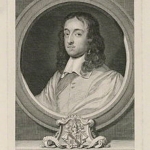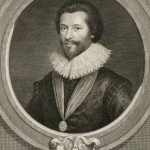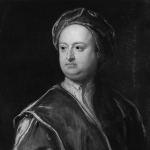Background
Robert Harley was born on December 5, 1661 in Covent Garden, Essex, United Kingdom. He was the eldest son of Sir Edward Harley, a prominent landowner in Herefordshire and his wife Abigail Stephens and the grandson of Sir Robert Harley.

Robert Harley was born on December 5, 1661 in Covent Garden, Essex, United Kingdom. He was the eldest son of Sir Edward Harley, a prominent landowner in Herefordshire and his wife Abigail Stephens and the grandson of Sir Robert Harley.
Robert Harley was educated at Shilton, near Burford, in Oxfordshire, in a small school which produced at the same time a Lord High Treasurer (Harley himself), a Lord High Chancellor (Lord Harcourt) and a Lord Chief Justice of the Common Pleas (Lord Trevor). Harley then spent some time at Foubert's Academy, but disliked it. He entered the Inner Temple on 18 March 1682, but was never called to the bar.
The principles of Whiggism and Nonconformism were taught him at an early age, and he never formally abandoned his family's religious opinions, although he departed from them in politics.
By 1688 Harley was acting as his father's agent in promoting support for William, Prince of Orange and the Protestant cause during the expected general election against the policies of James II. Robert Harley entered the House of Commons in 1689 as a moderate Tory and sat in every subsequent Parliament until he was made earl of Oxford in 1711. He was speaker of the House of Commons from 1701 to 1705 and secretary of state from 1704 to 1708, when Sidney Godolphin and the duke of Marlborough brought about his dismissal because he was using his cousin, Mrs. Masham, to undermine the Whigs' influence over Queen Anne.
The War of the Spanish Succession was becoming unpopular, and in 1710 Harley was back in office as chancellor of the exchequer and in 1711 he became lord treasurer, he and his friend Henry St. John (later Lord Bolingbroke) controlled the ministry, although Harley was much the more moderate Tory. The Peace of Utrecht with France was concluded in 1713, but a growing rivalry between St. John and Harley caused the latter's fall in 1714. On the accession of George I he was imprisoned in the Tower from 1715 to 1717, but little could be proved against him. After an imprisonment of nearly two years, he was formally acquitted from the charges of high treason and high crimes and misdemeanours for which he had been impeached two years earlier and allowed to resume his place among the peers.
Harley took little part in public affairs, and died almost unnoticed in London on 21 May 1724.
The central achievement of Harley's government was the negotiation of the Treaty of Utrecht with France in 1713, which brought an end to twelve years of English and Scottish involvement in the War of the Spanish Succession.
Robert Harley began his career as a Whig, before defecting to a new Tory Ministry.
His failure was as a result of increased extremism in the Tory Party (which won decisively in the general elections of 1710 and 1713), the problems of the peace with France (which the Whigs strenuously opposed), and the rivalry with Bolingbroke.
patron
October Club
1711 - 1714
patron
Scriblerus Club
As a patron of the arts, Robert Harley was notable. As a preservationist, he was invaluable. He used his wealth and power to collect an unparalleled library. He commissioned the creation of ballad collections, such as The Bagford Ballads, and he purchased loose poems from all corners. He preserved Renaissance literature (particularly poetry), Anglo-Saxon literature that was then incomprehensible, and a great deal of Middle English literature. His collection, with that of his son Edward Harley, was sold to Parliament in 1753 for the British Museum by the Countess of Oxford and her daughter, the Duchess of Portland; it is known as the Harley Collection.
Harley was married to Elizabeth, a daughter of Thomas Foley, and they had four children before she died in November 1691: Edward (1689-1741), who married Henrietta Cavendish Holles and succeeded as 2nd Earl of Oxford and Earl Mortimer; Robert, who died in infancy in 1690; Elizabeth (died 20 November 1713), who married Peregrine Osborne, later 3rd Duke of Leeds in 1712; Abigail (died 15 July 1750), who married George Hay, later 8th Earl of Kinnoull in 1709. After Elizabeth's death, Harley married Sarah (died 17 June 1737), daughter of Simon Middleton of Edmonton, London, on 18 September 1694. They had no children.

Sir Edward Harley (21 October 1624 - 18 December 1700) was an English politician who sat in the House of Commons at various times between 1646 and 1695. He supported the Parliamentary cause in the English Civil War.

Sir Robert Harley (baptised 1 March 1579 - 6 November 1656) was an English statesman who served as Master of the Mint for Charles I and later supported the parliamentarians during the English Civil War.

Edward Harley, 2nd Earl of Oxford and Earl Mortimer (2 June 1689 - 16 June 1741), styled Lord Harley between 1711 and 1724, was a British politician, bibliophile, collector and patron of the arts.